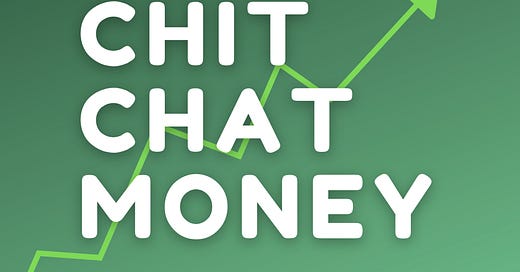3 Things I Thought About Last Week:
Minimum and maximum turnover. My favorite quote from the Motley Fool is the “trim the weeds” bit. It is fantastic advice as losers in your portfolio can make you act irrationally because of the psychological devastation they bring to your brain. But how much of your portfolio should be “trimmed” each year? It definitely comes down to risk tolerance and your asset allocation plan. However, unless you are a full-time indexer or are in a few ultra-safe securities like Berkshire Hathaway, I think you should have a portfolio turnover target. Doing this beforehand can be helpful (make sure to write it down!) because if you miss either to the high or low end it can tell you if you are taking too much or too little risk with your investments. For example, with a middle-of-the-road 20 stock portfolio that is looking for 6% - 12% real returns over a long period of time, planning to ditch 1 - 2 companies a year (5% - 10% turnover) seems reasonable. If you come in below that, never selling anything in your portfolio, you could be taking too little risk or tricking yourself with the endowment effect that your losers are not actually losers. Come in too high, with 4 - 5 companies getting cut each year, and you are either taking on too much risk or are too quick to eliminate positions from your portfolio. Putting a turnover goal as a part of your portfolio management process, tracking it, and trying to objectively analyze whether you’ve followed it can probably help your investment decision-making in the long run.
Wasting time on nothing. How many hours have been wasted by incredibly smart people on stupid bullshit in the last decade? It might be in the tens of billions of hours. The biggest example here is crypto (I can already feel the 10 zealots unsubscribing…have a good life). I’ve been thinking a lot about crypto this week because we just recorded a bonus interview with Bennett Tomlin, who is investigating the $70 billion+ stablecoin Tether (Show comes out Wednesday!) and the nefarious activities the entity has engaged in. I won’t get into the weeds of the interview, but I keep finding myself thinking with crypto: What is the point? Is it all just a game? Are we just going to have billions upon billions of dollars worth of digital “assets” circulated, loaned out, and printed (in the case of Tether) in one giant circle-jerk until…we all get rich? I don’t understand the end-game, I don’t understand why everyone cares so much, and I don’t understand why our society is so focused on having a lot of zeroes next to our names in an obscure database three dudes made up. Resist the FOMO. Break the cycle. Rise above.
Surviving and resilience is the most important thing. I don’t even have one full cycle of experience under my belt (how much does March 2020 count? It was barely a month), so don’t take any of my thoughts on the bull market too seriously. But in a time like this (Q3 2021 earnings season) where so much of the market is trading at a premium valuation, with stocks dropping by 20% left and right after earnings releases, I think it is important to resist the urge to “press” your portfolio. This means don’t panic, change your strategy, or put on riskier bets just because your stress levels have been elevated and the investment landscape “feels” chaotic. If you are invested in durable, cash-flowing businesses that you bought at a reasonable valuation, eventually the stock’s total return will track that cash generation. But man, is it hard to resist taking poor actions when you watch (some) multiples expand to infinity in less than two years’ time.
Catch-up on Our Shows From This Week:
3 Good Reads:
1 Good Listen:
***This week’s sponsor: The Alternative Assets Newsletter***
Investment options are all around us — but if you're only thinking about stocks, you're missing out on some great opportunities.
That’s why we’ve been reading the Alternative Assets Newsletter.
Stefan and Wyatt analyze the heck out of new investment markets, including NFTs, trading cards, video games, sneakers, even fun stuff like LEGO sets, music rights, and islands!
This isn't just about information, either. It's about results. Alternative assets can be a powerful tool for growing your money, and they know exactly how to navigate 'em.
They were the first ones to track these new markets, and their recommendations are already crushing the benchmarks.
Check out Alternative Assets →
Smart and Funny Tweets:

















I enjoyed this one!